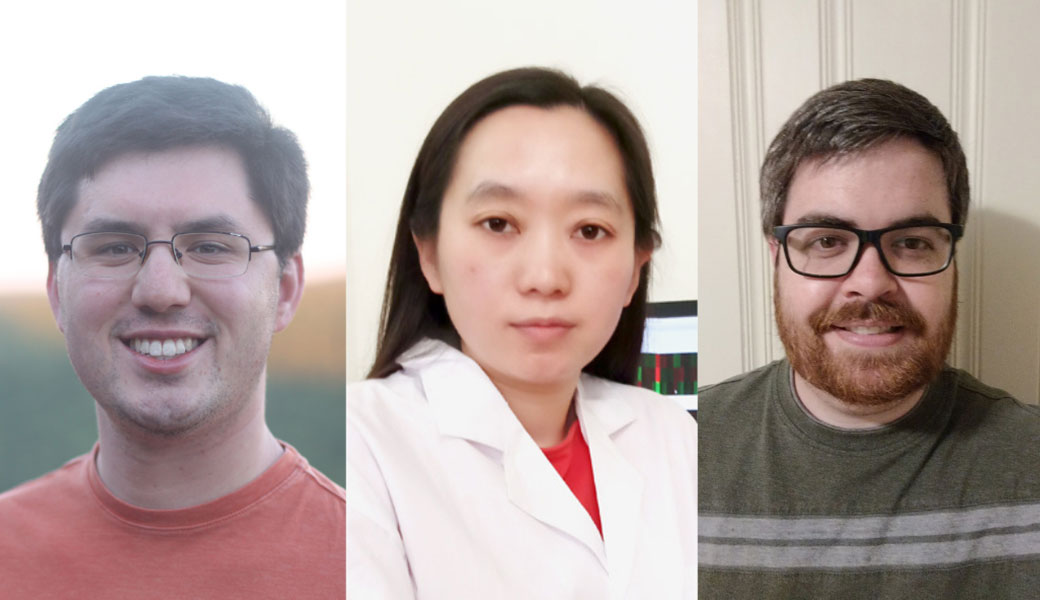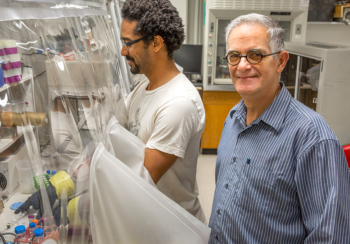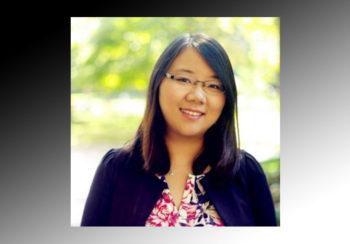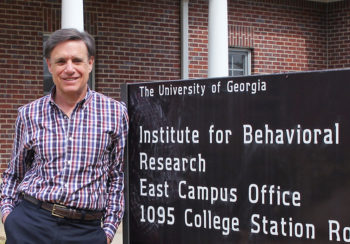Three UGA postdocs were recently awarded prestigious postdoctoral awards from the National Institutes of Health, and a recent UGA policy change is adding icing to the cake.
Sean Beckwith, Brent Simpson and Xiaoyun Wang received the NIH’s Ruth L. Kirchstein Postdoctoral Individual National Research Service Award in 2020. Previously, UGA averaged only one recipient per year.
This increase in fellowship honorees coincides with the timely launch of a new policy, UGA’s Educational and Professional Leave for Postdoc Fellows policy. The change allows postdoc students to apply for highly sought-after fellowships while retaining employee benefits, two crucial aspects of their research and livelihood.
“Most postdoctoral associates are classified as employees and receive full employee benefits, while postdoctoral fellows—those receiving a stipend as part of an external fellowship—are prohibited by NIH from being considered an employee,” said Shelley Hooks, associate vice president of research. “So in previous years, obtaining one of these prestigious fellowships meant that the recipient would lose their employee benefits. This provided a disincentive for postdocs to pursue one of the most important career development milestones, securing independent research funding.
“With UGA’s new policy change, which includes placing the employee on educational leave while they are on fellowship support, postdocs are now able and encouraged to apply for these fellowships while maintaining their benefits eligibility,” Hooks said.
Prior to the new policy, Beckwith, a research associate in biochemistry and molecular biology; Simpson, a research associate in infectious diseases; and Wang, a research associate in the Center for Vaccines and Immunology, would have had to choose between gaining much-needed external funding and losing employee benefits. Beckwith is grateful for the change.
“This new policy is a game-changer for postdocs like me,” he said.
Focusing his research on nucleic acid biochemistry and gene expression, Beckwith is eager to see how his new fellowship will enhance his work.
“The award provides important funding that permits me to focus on advancing my research on uncovering how genome sequences build virus-like particles that allow them to replicate,” Beckwith said. “With this new funding supporting me, other funds in the lab are made available for equipment that will help the genomics arm of my work and for new personnel to accelerate the many experiments that go into scientific discovery.”
Postdocs are not the only ones witnessing the positive changes emerging from the new policy; faculty members are also taking notice. Stephen Trent, professor in the College of Veterinary Medicine and advisor to Simpson, praised UGA for the much-needed change.
“In the past, trainees did not bother to apply for these fellowships once they learned that their success jeopardized their employee benefits,” said Trent, who received the same NIH fellowship more than 20 years ago. “In the end, the job of the mentor and the university is to lift our postdocs up to reach their full potential, and anything that UGA does to support them is beneficial to all. This policy change is a win-win for both the university and the trainees.”
Hooks, who has been instrumental in implementing the policy change, hopes to see an increase in fellowship and grant applications from postdocs.
“It’s wonderful that these incredibly talented postdocs no longer have to choose between seeking a prestigious fellowship and losing much-needed benefits,” she said.
The Office of Research will host a Research Matters Live webinar on Feb. 16 at 1 p.m. to discuss the policy change and available opportunities for postdoc fellowships. The webinar is open to the UGA community. Registration is required to attend.






